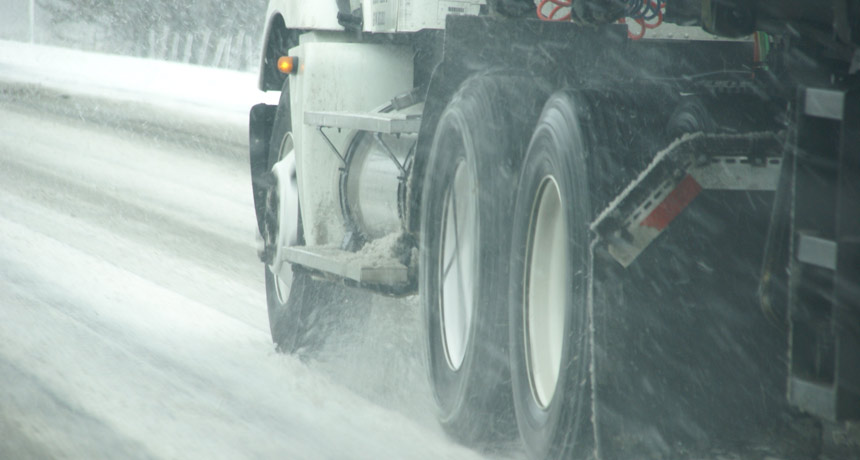Treating roads with oil and gas wastewater may spread harmful pollution

Each year, finding and extracting oil and gas for energy produces hundreds of billions of gallons of wastewater in the United States. When recycled and spread on roads, the wastewater can leak its contaminants, including salt, radioactive elements and chemicals that interfere with hormones, into groundwater and surface water, researchers report May 30 in Environmental Science and Technology.
Currently, 13 states permit this wastewater to be used on streets for road maintenance, as a cheap deicing fluid or to keep down dust on unpaved roads. It’s a particularly common practice in rural communities with low budgets for keeping roads in shape.
Spills from oil and gas wastewater treatment plants have sparked concern about contaminants such as radium (which naturally occurs in oil and natural gas deposits) that could affect human and environmental health. But the water’s use on roads might be a bigger problem, the study shows. For example, in Pennsylvania, the amount of radium that leached from wastewater spread on roads from 2008 to 2014 is about four times as high as what was discharged from wastewater treatment facilities during the same period, the researchers calculated using existing data. And it was about 200 times as high as the amount leached during wastewater spills.
The new research could lead to policy interventions, such as requiring the wastewater to be tested for radium before being used on roads. And it also suggests a need for affordable deicing alternatives, the team suggests.